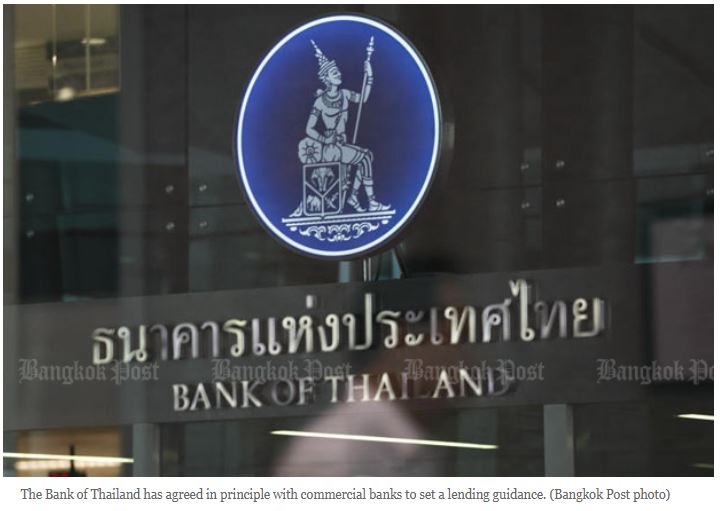Thailand: BoT and banks mulling DSR maximum of 70%
The Bank of Thailand and commercial banks have initially agreed to set a lending guidance by capping a borrower’s debt-service ratio (DSR) at 70% for those earning up to 30,000 baht a month.
The move is to keep a lid on the country’s household debt, warding off potential financial stability risks and standardising loan extensions.
The DSR guidance for the fragile customer segment is a key instrument to control family debt problems, said Philip Chen Chong Tan, Kiatnakin Bank’s president.
“We’ve agreed to limit the DSR of low-income earners with a monthly income of up to 30,000 baht at no more than 70%,” he said. “The guidance has not been finalised and further discussions are needed.”
The central bank has been in discussions with commercial banks for a while about a DSR standard to control the country’s household debt ratio, which rose to 78.7% of the country’s GDP at the end of March from 78.3% at the end of last year.
Local financial institutions have focused on debt collateral rather than debt payment ability, however. For instance, auto lenders always approve loans to those who make high down payments, regardless of the borrower’s DSR.
Accumulation of household debt, especially auto and mortgage loans, is a risk that the central bank is monitoring because it could hurt future financial stability.
The focus of the curbs is mainly on first-time workers, low-income earners and the elderly, Mr Tan said.
Consumerism is another concern, and the regulator is asking for cooperation from financial institutions to not encourage consumption or loans that are out of the repayment ability of consumers. There would still be ample opportunity for consumers to access financial sources.
“The DSR standard is a part of the central bank’s responsible lending practice concept that we agree with,” Mr Tan said. “The bank has applied the practice, which is considered to be a good risk management method.”
A local banking source said the initial guidance would help to control the country’s stubbornly swelling household debt and improve asset quality of financial institutions.
First-jobbers, retirees who continue to run up debt and those with low repayment ability are vulnerable groups that are in focus under the DSR guidance.
With the 70% DSR limit, a borrower with monthly income of 30,000 baht is expected to have disposal income of 300 baht a day for living expenses.
The banking source, however, raised concerns that the guidance could limit lending accessibility for low-income earners and compel them to borrow from loan sharks.
Further discussions to find solutions to the problem are necessary, the source said.
Source: https://www.bangkokpost.com/business/1721731/bot-and-banks-mulling-dsr-maximum-of-70-


 Thailand
Thailand




